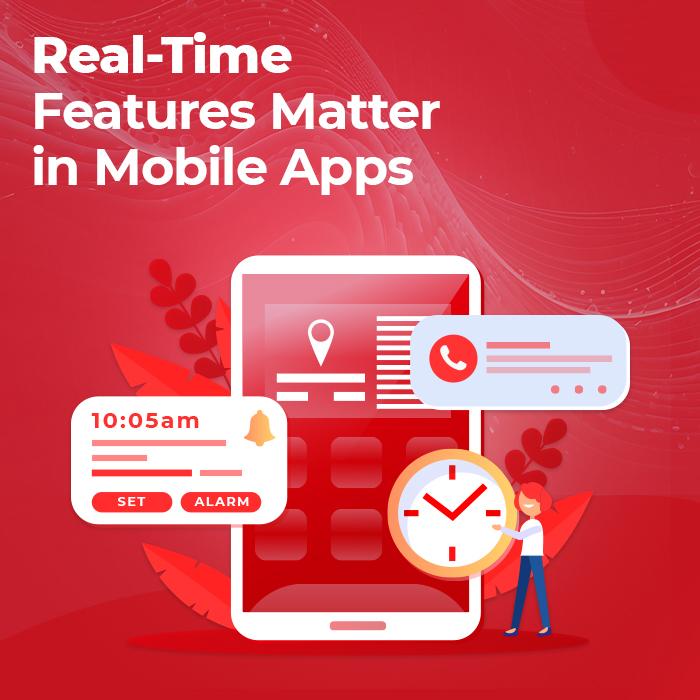6 Reasons Why Real-Time Features Matter in Mobile App Development
Introduction
In today’s fast-paced digital world, users expect instant interactions and seamless experiences. Whether it’s real-time messaging, live streaming, or location tracking. Real-time features have become essential in mobile app development.
Real-time functionality enhances engagement, improves user experience, and provides a competitive edge in industries like e-commerce, healthcare, finance, and gaming. In this article, we’ll explore why real-time features matter in mobile app development and how they are transforming various industries.
1. Enhancing User Engagement and Experience
Users demand immediate responses when interacting with an app. Delays and lag can lead to frustration, reduced retention, and app abandonment.
Key benefits of real-time features for user engagement:
• Instant interactions: Users get immediate feedback, making apps feel more dynamic.
• Increased retention: Apps with live features keep users engaged for longer periods.
• Seamless collaboration: Real-time document editing, shared whiteboards, and interactive features enhance productivity apps.
2. Real-Time Messaging and Communication
One of the most common applications of real-time technology is instant messaging. Platforms like WhatsApp, Telegram, and Slack rely on real-time data synchronization to provide seamless conversations.
How real-time messaging enhances apps:
• Instant notifications: Users receive immediate updates when messages arrive.
• Typing indicators and read receipts: These features make interactions feel more personal and engaging.
• Voice and video calls: Real-time communication enables smooth, lag-free calls.
3. Live Streaming and Interactive Video Content
Live streaming has revolutionized entertainment, e-learning, and social media. Whether it’s Twitch for gaming, YouTube Live for content creators, or virtual events, real-time video streaming enhances engagement.
Why live streaming is important:
• Enhanced user participation: Viewers can interact via live chats, polls, and reactions.
• Improved reach: Businesses and influencers can connect with a global audience instantly.
• Higher revenue opportunities: Monetization through ads, super chats, and sponsorships.
4. Real-Time Location Tracking and Navigation
From ride-hailing apps like Uber to food delivery services like DoorDash, real-time GPS tracking plays a critical role in modern mobile applications.
How location-based real-time features add value:
• Accurate ETAs: Users receive precise arrival estimates for rides or deliveries.
• Live updates: Customers can track orders in real-time.
• Geo-fencing: Apps can trigger location-based alerts and offers.
5. Real-Time Financial Transactions and Stock Market Updates
In fintech apps, real-time data ensures seamless transactions and accurate stock market updates. Banking apps, trading platforms, and crypto wallets rely on real-time functionality for security and reliability.
Key real-time financial features:
• Instant money transfers: Peer-to-peer payment apps enable instant fund transfers.
• Live stock price updates: Investors receive real-time market data for informed decisions.
• Fraud detection: AI-powered real-time monitoring helps prevent fraudulent transactions.
6. The Role of WebSockets and APIs in Real-Time Development
Developers leverage WebSockets, Firebase, and other real-time APIs to implement live features. These technologies allow for bidirectional communication between clients and servers, ensuring data syncs instantly.
Conclusion
Real-time features have become a necessity in mobile app development. Whether it’s messaging, streaming, tracking, or transactions, integrating real-time functionality enhances user engagement, efficiency, and app performance.
For developers and businesses, embracing real-time technology is essential to staying ahead in an increasingly competitive market
Have an app idea and want to get started? Contact us now!



